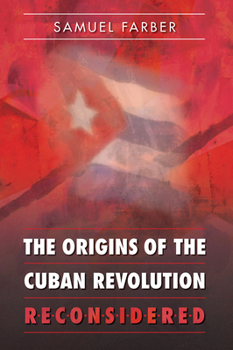The Origins of the Cuban Revolution Reconsidered
(Part of the Envisioning Cuba Series)
Select Format
Select Condition 
Book Overview
Analyzing the crucial period of the Cuban Revolution from 1959 to 1961, Samuel Farber challenges dominant scholarly and popular views of the revolution's sources, shape, and historical trajectory. Unlike many observers, who treat Cuba's revolutionary leaders as having merely reacted to U.S. policies or domestic socioeconomic conditions, Farber shows that revolutionary leaders, while acting under serious constraints, were nevertheless autonomous agents...
Format:Paperback
Language:English
ISBN:0807856738
ISBN13:9780807856734
Release Date:March 2006
Publisher:University of North Carolina Press
Length:230 Pages
Weight:0.76 lbs.
Dimensions:0.6" x 5.9" x 9.3"
Customer Reviews
1 rating
Good solid information
Published by Thriftbooks.com User , 16 years ago
This writer gives an objective summary of the Cuban revolution, with precipitating events going back to the 1930's and further. It was very informative, with a minimum of spin and an obvious grounding in research. The author lets you make up your own mind, which I appreciated. The thing the book doesn't do much is bring Cuban history to life. I'm sure there are many stories about Castro and others that could add color to the story. Only a few of these are included.






